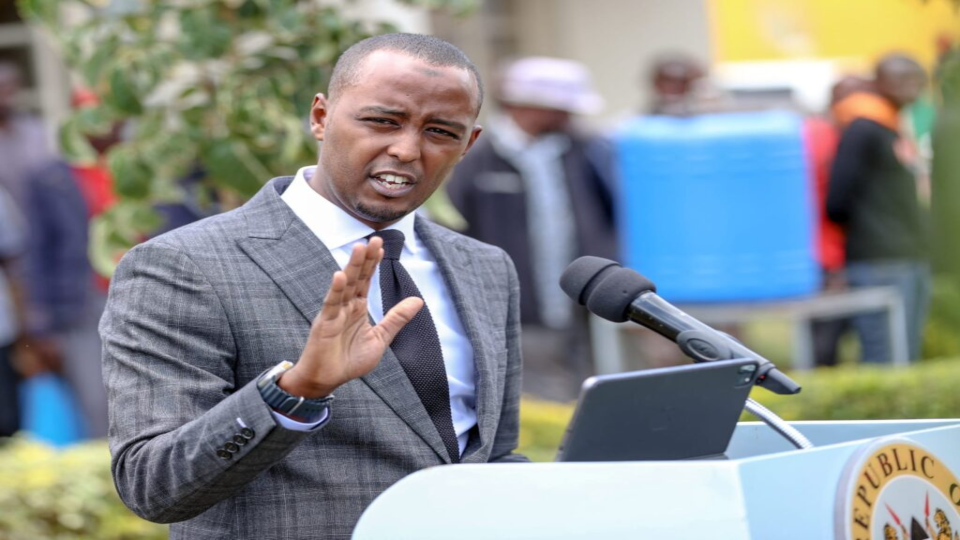President Ruto Defends Bold Reforms Amid Criticism, Highlights Economic and Social Progress
President William Ruto has robustly defended his administration's transformative agenda, countering claims that his leadership is steering Kenya toward instability. In a recent statement, the President emphasized that his government is making tough but necessary decisions to reshape Kenya's future, focusing on economic stabilization, job creation, and social welfare programs. This comes in response to a critical article that suggested Ruto's policies were leading the country into a dangerous spiral of violence and discontent.
Ruto, speaking through State House Spokesperson Hussein Mohamed, highlighted significant economic achievements since taking office in 2022. He noted that Kenya's Gross Domestic Product (GDP) is projected to reach KSh17 trillion by the end of 2025, positioning Kenya as the largest economy in East Africa and the sixth largest in Africa. Inflation has dropped significantly from 9.6 percent in October 2022 to 3.8 percent in May 2025, providing relief to households and businesses. The Kenyan shilling has also strengthened by nearly 20 percent against the US dollar, moving from KSh162 to KSh129, making it one of the best-performing currencies globally. Additionally, the Central Bank Rate has been reduced from 13 percent to 9.75 percent, lowering borrowing costs and stimulating private sector activity. Foreign exchange reserves have reached a historic high of $10.8 billion, extending Kenya's import cover from 2.5 to 4 months.
The President underscored his administration's commitment to social welfare, particularly through the Affordable Housing Programme and the Social Health Authority (SHA). The housing initiative, a cornerstone of Ruto's Bottom-Up Economic Transformation Agenda (BETA), aims to create jobs and provide affordable homes for millions of Kenyans. During a recent inspection of the Kibera Soweto East Zone B Affordable Housing Project, Ruto assured citizens of transparent implementation and equitable distribution. The SHA, under the Taifa Care initiative, has enrolled over 23.7 million Kenyans, with nearly 60,000 registering daily. The program has cleared over KSh49 billion in reimbursements and claims, replacing the less inclusive National Health Insurance Fund (NHIF) with a digital-first model that allows flexible contributions based on financial ability.
Agricultural reforms have also been a focal point, with Ruto citing a 50 percent increase in food production due to fertilizer subsidies. Reforms in the coffee and sugar sectors have revitalized local industries, doubled coffee prices, and increased sugar production from 490,000 to 815,000 metric tonnes. The leasing of four state-owned sugar mills (Sony, Chemelil, Nzoia, and Muhoroni) ensures timely payments to farmers and job preservation in sugar-belt counties, which are key political strongholds ahead of the 2027 elections. Infrastructure development has also progressed, with 1,800km of new tarmac roads built and 134,800km maintained in the past two and a half years, surpassing targets and boosting rural economies.
Despite these achievements, Ruto's administration faces significant challenges, including public discontent over high living costs, youth unemployment, and allegations of corruption. Protests, particularly led by Kenya's youth, have intensified, with some calling for the President's resignation. Critics argue that Ruto's aggressive tax policies and negotiations with the International Monetary Fund (IMF) disproportionately burden the poor while benefiting the political and business elite. The withdrawal of the controversial Finance Bill 2024, following nationwide protests that resulted in at least 39 deaths, was cited by Ruto as evidence of his government's responsiveness. However, ongoing unrest and accusations of police brutality, including the death of a blogger in custody, have fueled public anger. Demonstrators have adopted the slogan "wantam," signaling their desire for Ruto to serve only one term, ending in 2027.
Ruto has dismissed accusations of authoritarianism, asserting that Kenya remains a vibrant democracy where peaceful protest is protected. He urged demonstrators to remain non-violent, emphasizing that protests must not infringe on others' freedoms. The President also rejected claims that current protests lack ethnic divisions, arguing that civic activism in Kenya has rarely been organized along tribal lines in recent years. He criticized attempts to frame the movement as ethnically driven, calling such narratives unnecessary and damaging.
On the international stage, Ruto has advocated for reforms in global institutions like the United Nations Security Council, highlighting Kenya's leadership in initiatives such as the Multinational Support Mission in Haiti and the ClimateWorX program, which employs 200,000 young Kenyans in ecological restoration. These efforts, he argues, demonstrate Kenya's commitment to addressing global challenges like climate change and inequality.
As the 2027 elections approach, Ruto's administration is quietly building a re-election strategy centered on policy achievements and economic indicators. Political analysts suggest that the success of programs like Taifa Care, affordable housing, and agricultural reforms could bolster his campaign, particularly in rural areas. However, effective communication remains a challenge, with some officials admitting that the government has struggled to convey its achievements to the public. With mounting scrutiny and sustained protests, Ruto's ability to balance bold reforms with public expectations will be critical in shaping Kenya's future and his political legacy.


